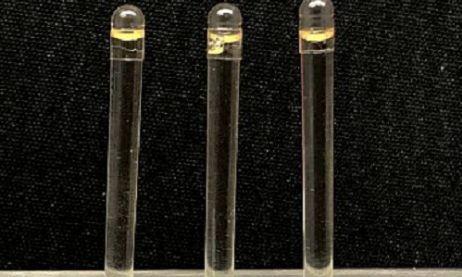US researchers develop a way to package insulin into pills that lowered blood sugar safely and for an extended time in rats. The approach could lead to development of an oral insulin option, which would make it easier for people with diabetes to maintain their blood sugar levels.
Washington (ISJ) – Globally, an estimated 422 million adults were living with diabetes in 2014, compared to 108 million in 1980. The global prevalence (age-standardized) of diabetes has nearly doubled since 1980, rising from 4.7% to 8.5% in the adult population. This reflects an increase in associated risk factors such as being overweight or obese. Over the past decade, diabetes prevalence has risen faster in low- and middle-income countries than in high-income countries.
Diabetes caused 1.5 million deaths in 2012. Higher-than-optimal blood glucose caused an additional 2.2 million deaths, by increasing the risks of cardiovascular and other diseases. Forty-three percent of these 3.7 million deaths occur before the age of 70 years. The percentage of deaths attributable to high blood glucose or diabetes that occurs prior to age 70 is higher in low- and middle-income countries than in high-income countries.
People with diabetes must actively monitor and control their blood sugar levels. Many need injections of insulin, a hormone that helps the body process glucose, several times a day to keep their blood sugar levels under control. But it can be difficult and painful to keep up with insulin injections. An oral form of insulin would drastically ease the difficulty of maintaining healthy blood sugar levels.
Insulin runs into many obstacles when taken by mouth. First, acid in the stomach can degrade it. Second, any insulin that reaches the small intestine from the stomach can be chopped up by the enzymes that help break down food. Finally, insulin needs to be absorbed into the bloodstream through the cells that line the small intestine.
A research team led by Dr. Samir Mitragotri of Harvard University has been exploring the uses of an ionic liquid called CAGE. Ionic liquids contain both positively and negatively charged molecules. CAGE is made from two non-toxic compounds, choline and geranate. In previous work, the team showed that CAGE could be used to deliver antibiotics and insulin through the skin of rats.
In their latest study, the team tested whether CAGE could protect insulin from degradation by the digestive system and help it through the intestinal lining. Results were published in the latest edition of the Proceedings of the National Academy of Sciences.
The researchers first tested whether their insulin-CAGE solution was stable. The structure and function of insulin remained intact in CAGE for 2 months at room temperature and at least 4 months when refrigerated.
When injected directly into the small intestines of non-diabetic rats, the solution quickly lowered blood sugar levels by up to 65%. Insulin-CAGE delivered through the small intestine lasted longer in the bloodstream than insulin injected under the skin.
The researchers next packaged insulin-CAGE into enterically coated capsules. Enteric coatings are resistant to stomach acid but dissolve when they reach the small intestine. When given by mouth to rats, the capsules caused a slow and steady drop in blood sugar, by about half over 10 hours. This drop was smoother and longer lasting than that caused by injection. Samples taken from the intestinal walls after administration showed no damage caused by the insulin-CAGE solution.
“Once ingested, insulin must navigate a challenging obstacle course before it can effectively be absorbed into the bloodstream,” Mitragotri said. “Our approach is like a Swiss Army knife, where one pill has tools for addressing each of the obstacles that are encountered.”
The researchers are now planning studies with diabetic animals to gauge the long-term safety and effectiveness of oral insulin-CAGE. They hope to eventually test the approach in a human clinical trial.


